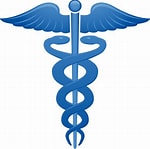 by James C. Sherlock
by James C. Sherlock
Without adequate primary medical, dental and mental health care, people cannot function properly. They often go through life sick and untreated.
By “sick” in this case I refer to less well than achievable with proper primary care.
Just because there is adequate access to primary care in a particular area does not mean that all people take advantage of it, but lack of access raises significantly the probability of a lifetime of sickness.
Babies are born sick, children go to school while sick, adults work while sick and the elderly suffer and die early.
It is useful to review the areas in Virginia that have profound shortages of primary care providers. Medicaid is a false promise when such shortages exist. Economic development is very unlikely.
Some are where you might guess if you thought about it. Some are not.
A Heath Professional Shortage Area – HPSA – is a federal designation which recognizes that a particular geographical area, population, or institutional facility is experiencing a shortage of primary care services.
Here is the theory of how HPSA designations are supposed to work:
Once a HPSA designation is achieved, the federal government commits to assist by infusing aid through various programs and incentives, which make the area more attractive to physicians.
As these professionals establish their practices within a HPSA, the shortage of primary caregivers is alleviated, government assistance is eventually withdrawn, and the physicians frequently put down permanent roots within their service area to the mutual benefit of their careers, families, and the community.
HPSA Scores
are developed for use by the National Health Services Corps (NHSC) and Health Resources and Services Administration (HRSA) to prioritize the need of designations.
Based on the severity of a health professional shortage, scores range from 1 to 25 for primary care and mental health, and 1 to 26 for dental health. The higher the score, the greater the need for additional medical services, which increases an area’s priority for placement of new practitioners (eligibility for acquiring NHSC recruits is typically a score of 14 or higher).
Several factors go into determining a score, such as providers-to-population ratios, poverty levels, and the incidence of infant mortality or low birth weights.
Federally Qualified Health Centers (FQHCs) are community-based health care providers that receive funds from the HRSA Health Center Program to provide primary care services in underserved areas. They must meet a stringent set of requirements, including providing care on a sliding fee scale based on ability to pay and operating under a governing board that includes patients.
There are three types of HPSA designations: Geographic, Population, and Facility.
- Geographic HPSAs have a shortage of providers for the total population within a geographic area;
- Population HPSAs have an underserved population group such as those with low incomes or migrant farm workers;
- Facility designations are Community Health Centers, Rural Health Clinics, or federal and state correctional facilities whose facility is underserved and in need of a HPSA.
Virginia.
The Health Resources and Services Administration (HRSA) Bureau of Health Workforce keeps track of HPSAs. Follow the link, enter Virginia, select “designated,” check “primary care,” “mental health,” and “dental care,” and submit.
Dental Health is the biggest healthcare shortage discipline in Virginia.
The highest need Dental Health HPSA’s in Virginia are very high-need indeed. They include nine Virginia counties/cities with one or more Federally Qualified Health Center (FQHC) with HPSA scores of 25:
- Buckingham County
- Scott County
- Richmond City (two)
- Montgomery County
- Sussex County (two)
- Lynchburg City (one FQHC and one FQHC look-alike)
- Roanoke City
- Martinsville City
- Lee County
The highest primary medical care needs are seen, with HPSA scores of 21, at a federal correctional facility in Lee County and FQHC’s in
- Scott County
- Danville City (two)
- Portsmouth City
- Rockbridge County
Primary medical care HPSA Scores of 20 are found in a low income HPSA in Danville and FQHC’s in
- Richmond City (two)
- Lee County
- Charles City County
Mental Health HPSA scores of 22 are found at FQHCs in:
- Harrisonburg City
- Danville City
- Rockbridge County
Mental Health HPSA scores of 21 are found at correctional facilities in Lee and Tazewell counties and at FQHCs in:
- Nelson County
- Accomack County
- Lynchburg City
Immediately across the state border on I-64, Greenbrier County WV FQHC which serves Virginians has critical shortages of dental care, primary medical care and mental health care providers.
Federal healthcare programs associated with HPSA designations can alleviate shortages. For examples, deselect “designated” and select “Proposed for withdrawal” and “Withdrawn” and submit.
You will see there a lot of success stories since 1979.
However, it remains very hard to get health professionals to establish practices in many areas that most need them not only because of financial, but also lifestyle disincentives.
For those, the federal programs need state support.
What to do. One of the reasons that I drafted and then-Delegate Jason Miyares, R-Va Beach, carried a Virginia Health Enterprise Zones (HEZ) Act was to focus state efforts to align with those of the federal government.
In Maryland the state HEZ’s achieved the results that federal efforts had not been able to get. It saved Maryland Medicaid hundreds of millions of dollars because of the reduction of hospital admissions resulting from chronic diseases untreated by primary care at early stages.
We have yet to establish a HEZ program in Virginia.

Leave a Reply
You must be logged in to post a comment.